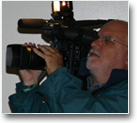
 |
  Trent University Masters Student Developing Process to Make Collection of DNA Samples More EffectiveFOR IMMEDIATE RELEASE Research Collaboration between Trent, DNA Ident Inc. and Tuesday, June 1, 2010, Peterborough In addition to her role as a Trent graduate student, Ms. Khan is also an intern for Mathematics of Information Technology and Complex Systems (MITACS) Accelerate Ontario, working with DNA Ident Inc., to help develop a unique smart DNA sample collection container called a C-POD™ that stabilizes and preserves genetic material prior to laboratory testing. This kit simplifies the process of collecting DNA samples and reduces the number of steps between sample collection and the acquirement of DNA. The C-POD is being positioned as a universal DNA collection device that accommodates DNA capture from many sources such as blood stain, hair root, meat tissue, dried fluid spot or animal ear tag. The product was developed by Trent University and the Natural Resources DNA Profiling & Forensic Centre (NRDPFC). “There is a high frequency of genotyping errors associated with DNA samples commonly used in wildlife genetics. With a protocol that provides higher yields, it will be easier to obtain DNA from samples that do not contain high amounts of template DNA, such as hair or scat, thus reducing downstream errors when conducting genetic analysis,” Ms. Khan explains, adding, “While current DNA extraction protocols are adequate, with the rise in the use of laboratory automation, I believe there is room for improvement and evolution in how we obtain our genetic information.” Working with DNA Ident, Ms. Khan is customizing sampling procedures and devices to trace meat from “farm to folk” using DNA profiling. This research is being undertaken in collaboration with Rowe Farm Meats, a leader in providing meat products raised without the use of antibiotics, growth promoting hormones, or animal based feeds. Ms. Khan is working to determine the pedigree and develop a genetic database of the Tamworth pigs on the farm of local Rowe Farms Meats supplier, Roger Harley, in Keene, Ontario. Since its inception in 1972, Rowe Farms Meats has grown to become a major retailer of antibiotic free chicken, pork, beef, lamb, turkey and eggs, all sourced from local Ontario farms. Rowe Farm Meats are also available at Fortinos, Fiesta Farms, Highland Farms and leading Natural Food stores in Ontario. Roger Harley spent much of his life developing animal-welfare driven farming practices in the United Kingdom. Today he farms just outside Peterborough as part of the Rowe Farms cooperative. Ms. Khan began her Masters degree in the Environmental & Life Sciences Graduate Program at Trent University in January 2008, after completing her undergraduate degree in Biochemistry and Molecular Biology at Trent. Her research is being conducted under the supervision of Dr. Bradley White, chair of the Biology Department. -30- Note for the media: On Saturday, June 5, 2010 Tasnova Khan will be presenting data from her research at a free Customer Appreciation Day on the working Rowe Farm of Roger and Julie Harley (1578 Heritage Line, RR3) in Keene, Ontario, from 11 a.m. to 3 p.m. All members of the public are invited to tour the farm, learn about sustainable farming practices and visit with Tamworth pigs, Belted Galloway cows and Wiltshire Horn sheep. A complimentary barbecue lunch featuring natural Rowe meats will be available. For more information, please contact:
|
































